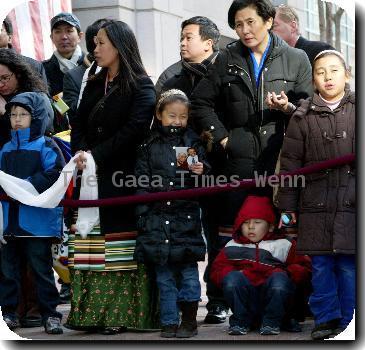India and Pakistan hold first talks since Mumbai attacks, small but significant step
By Tim Sullivan, APThursday, February 25, 2010
India, Pakistan hold 1st talks since Mumbai attack
NEW DELHI — India and Pakistan held their first official talks Thursday since the 2008 Mumbai siege, with both sides saying they wanted to rebuild trust shattered in that attack but acknowledging that the meeting was just a first step toward a renewed peace process.
The four-hour meeting between the nuclear-armed rivals ranged from shared water resources to the status of the disputed Himalayan region of Kashmir. But terrorism was the focus of the discussions — an emphasis Pakistan quickly made clear would only slow further talks.
“The only way forward is to engage meaningfully across the board, and not hold the relationship hostage” to the issue of terrorism, Pakistani Foreign Secretary Salman Bashir told reporters after the meetings. India has long argued that Pakistan has not done enough to rein in militants operating from its soil, an accusation that Pakistan denies.
Expectations were extremely low for Thursday’s talks, which were seen as little more than a symbolic first meeting and which India had billed as “talks about talks.” Both sides indicated little of substance had been achieved.
But just meeting after 15 months was a significant diplomatic achievement — even if it came in the wake of months of pressure from Washington, which is eager to see Pakistan shift resources away from the Indian border and toward supporting the U.S. in its fight against the Taliban and al-Qaida.
“Our aims were modest” Indian Foreign Secretary Nirupama Rao said after the discussions. “We have set out to take a first step towards rebuilding trust, and I believe my meeting with the Pakistan foreign secretary has constituted that first step.”
There was no immediate talk of a second meeting, with Rao saying only that she and Bashir “have agreed to remain in touch.”
U.S. Secretary of State Hillary Clinton expressed hope there was more to come. “The United States has encouraged a dialogue, and we certainly hope it will happen,” Clinton told a congressional hearing.
Pakistan has called for the resumption of comprehensive peace talks, but India has demanded it crack down on militants first, especially Hafiz Saeed, whom India accuses of orchestrating the Mumbai siege.
Rao said she reiterated to Bashir that his nation must do more to dismantle terror networks and gave him dossiers on those linked to the Mumbai attacks, an al-Qaida-linked militant who has issued threats against India, and Indian fugitives hiding in Pakistan.
Pakistan is trying seven men on charges they planned and carried out the Mumbai attacks, which left 166 people dead, but the militant network blamed for the assault continues to operate relatively freely in the Pakistani city of Lahore.
Bashir insisted, though, that Pakistan had done all it could.
“As far as the issue of Mumbai is concerned, Pakistan has done everything that was proper and could be done,” he said.
Under repeated questioning from reporters, Bashir eventually grew testy, noting Pakistan had been hit by far more terror attacks than India.
“We have suffered many, many hundreds of Mumbais,” he said. “We have lost a large number of civilians who have been subjected to these attacks by terrorists. Pakistan’s No. 1 priority is to deal with terrorism.”
“India should not just lecture us and demand Pakistan do this or that. That is not the way state-to-state relations are conducted,” he said. If discussions don’t move beyond terrorism, he said, “we’ll be caught endlessly in a time warp.”
Pakistan used the meeting to raise broader issues including the dispute over Kashmir — which both countries claim in its entirety and Bashir called “the core issue” — allegations that India is aiding militants in the Pakistani province of Baluchistan and a dispute over water resources.
The talks are a political risk for New Delhi because of public mistrust of Pakistan. However, the government is anxious to keep cross-border tensions low.
India is convinced that “we must not shut the door on dialogue with Pakistan and that such dialogue, if it gathers momentum, holds tremendous potential for the progress and well being of the people of our region,” Rao said.
Associated Press writer Desmond Butler contributed to this report from Washington.
Tags: Asia, Geography, Hillary Clinton, India, Kashmir, Mumbai, New Delhi, North America, Pakistan, South Asia, Territorial Disputes, Terrorism, United States

